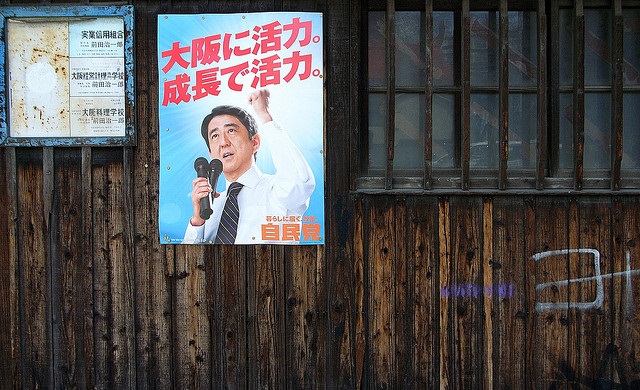Japan breathed a sigh of relief this morning as the G20 summit in Moscow closed with no direct comment on the continuing decrease in the yen or its potential impact.

The Nikkei 225 index (NIK:NI225) gained over 2% today as the yen weakened to 94.10 against the US dollar after reaching 92.25 at the close of last week. The yen is closing in on a 33 month low.
The was a reasonable expectation that the G20 might have make a strong statement during its two-day session regarding the Bank of Japan’s monetary easing policy which is, in effect, a cause of the yen’s weakening. Some see the BoJ engaging in currency manipulation. Japanese Prime Minister Shinzo Abe continues to insist the monetary easing is “aimed at beating deflation, not weakening the yen.” The Japanese economy has been in a “chronic state of mild deflation” for the last two decades.
Japanese Finance Minister Taro Aso iterated the same message directly to the other representatives of the summit, also pointing out that a 2% inflation target is another goal of the easing process.
The lack of expected criticism from the G20 seemed to be a tacit short-term approval of Prime Minister Abe’s economic recovery plan, meaning that it will likely remain silent on the continuing weakening of the yen at least for a few months. That position might well change if the group interprets Abe’s plan as currency manipulation in disguise.
A foreign exchange analyst of Bank of America Merrill Lynch said that the G20 will “limit Japan’s ability to provide verbal guidance on the yen. This takes away a key tool used by Japanese officials to weaken the yen at an unprecedented pace and shift the burden of evidence to policy implementation.”
Similarly, Standard & Poor’s announced that it will be maintaining it AA- rating (with a negative outlook) for Japan whilst the prime minister’s plan is still in its early stages. However, S&P also indicated that if the country’s economic easing methods failed to have the intended effect, it might be facing a prolonged decline in its credit rating.
Abe’s plan looks good on paper. It will be interesting to see how it works in practice, both for the Japanese and the world economies.


 Hot Features
Hot Features












